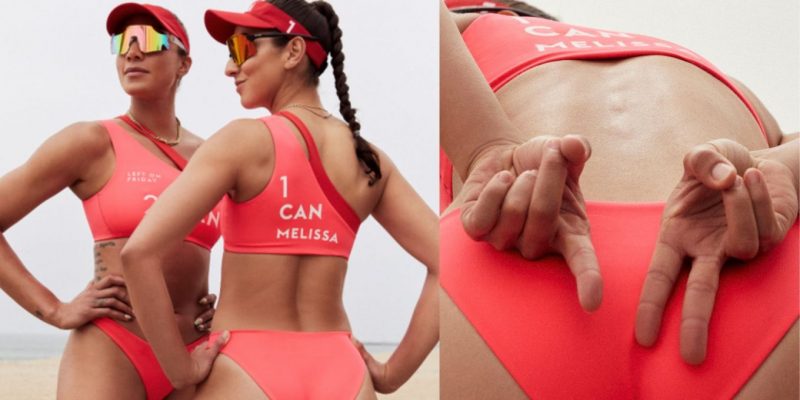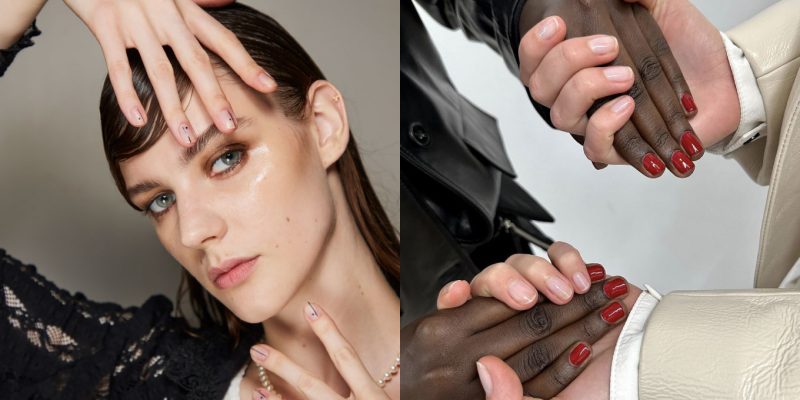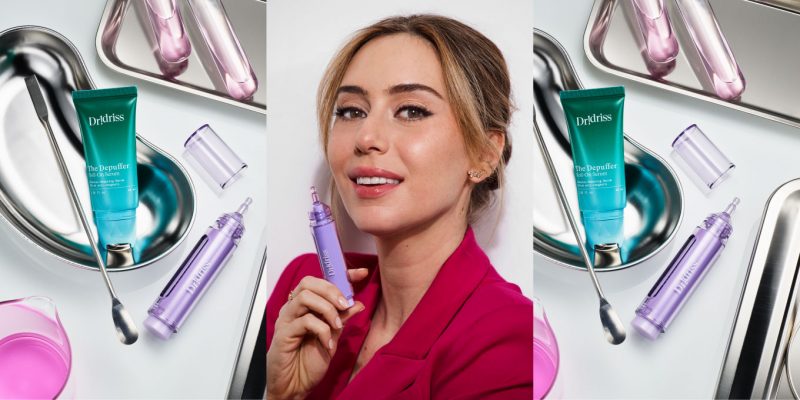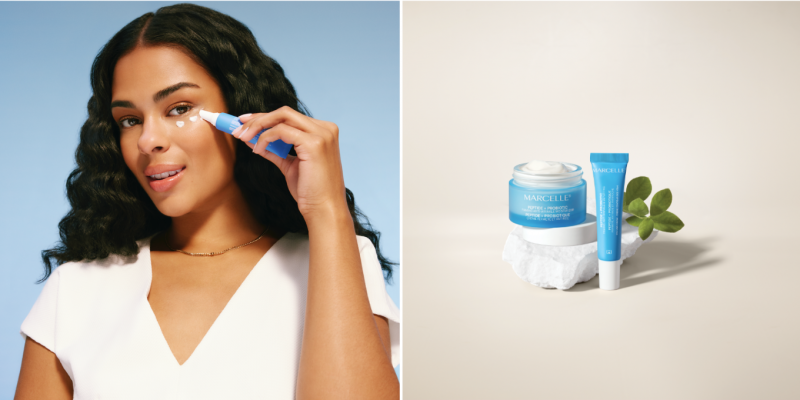Makeup & nails
Once the Pandemic Is Behind Us, Should We Still Care About Grooming?
by : Hudson Kathryn- Jun 23rd, 2020

Lauren Tamaki
“Oh, my god, welcome to the office!” shouted hairstylist Tony Pham with a dramatic wave of his arm as he graciously greeted me at his light-filled upscale hair salon, Lac + Co, a few months before COVID-19 changed everything. The scene – well-heeled clients at a massive boardroom-style table, working away at laptops while their highlights processed – now feels like a perfect distillation of pre-pandemic life. They were getting it all: glossy hair and shining CVs. “Successful women already have a full-time job – they don’t really have time to come here,” said Pham, settling onto a velvet settee. “I’m honest; I tell clients over and over again that they can’t have the same looks as celebrities without coming to see me every week.” The looks popularized by today’s contoured celebrity entrepreneurs “are too blond, too perfect” for most women to achieve without full-time glam teams. “After all, if you try to fight nature, honey, you’re going to lose,” said Pham before our conversation was brought to an abrupt end when two of his clients pushed past me and descended on him like well-groomed birds of prey, looping their arms around him and chatting in low tones.
I thought about those words a lot when a virus swiftly brought human society to its knees and the carefully ordered and privileged life I’d built for myself – childcare, meeting prep, blowouts, scheduled dinners out – dissolved at once, leaving me confined to my house with my family and my laptop, both of which howled like wolves for attention. While I was trapped between playing catch-up on deadlines and playing make-believe, there was no pretense for blowouts or manicures – since once-vital pitch meetings and touch-bases had been moved into amorphous virtual board- rooms – which was lucky because there was also no time for them. The COVID-19 pandemic stretched on, and the few spare minutes I used to reserve for straightening my hair or carefully plucking my brows disappeared along with the last spring frost. I couldn’t muster the energy to battle the natural state of my body, and as time stretched like a rubber band, my desire to engage in meticulous grooming simply snapped. (I’m not alone. Unilever – the international heavyweight behind personal-care brands from Dove to Degree – reported a decline in profits as people were driven indoors and the demand for products like shampoo and deodorant bottomed out.)
One morning, contemplating my reflection in the mirror, complete with the frizzy grey hairs that had been sprouting as quickly as the scallions I’d been growing in a little windowsill jar, I was surprised to realize that I didn’t feel the self-contempt I would have felt back when my schedule was a Tetris game of meetings and dinners. I thought of that old philosophical question about whether a tree makes any sound if it falls in the forest and no one is around to hear it. If I have no one to groom for, I mused, should I bother?
“There’s a subtle but vital distinction between, say, genuinely enjoying the creative expression of makeup and acknowledging the bump in value you receive when you’re made up.”
A grooming routine that is solely designed to please others – one that is based around the societal ideals of looking effortlessly younger, fuckable and hirable in equal measure – is neither healthy nor truly achievable, of course, but it’s also not “self-care,” a spoonful-of-sugar term marketed by capitalism and patriarchy to make women swallow the bitterest of pills. There’s a subtle but vital distinction between, say, genuinely enjoying the creative expression of makeup and acknowledging the bump in value you receive when you’re made up. I didn’t miss having my hair blown straight because it was not an act of pampering but, rather, a professional tool and social-survival strategy. I didn’t mourn manicures because, depressingly or enlighteningly, I realized that I only care about how my nails look to those whose approval I require or desire. The more I thought about how I’d been spending my rare “me time” on validating the demands of others, the more it haunted me – and the lighter I became.
Beauty critic Jessica DeFino spent much of her time in lockdown considering the rippling psychological consequences of the pressure to be pretty that women have internalized. “I cringe every time I hear women on Instagram Stories say ‘I put on makeup and feel like a human again!’” she wrote. “How detached from our own humanity have we become if we feel the most ‘human’ by covering up our actual faces with artificial faces?”
When we cover up our tired eyes, our laugh lines and our stress pimples, are we obscuring part of our humanity and losing any of the celebration or joy that preening can produce? “After all this, I’m wondering if people will start to focus more on what feels good rather than what ‘looks good,’” mused one of the talented women who work at Lac + Co when I caught up with her this week. “Everyone needs to stay away from looking at themselves through a magnification mirror. It can be exhausting.”
Ashley Whillans, assistant professor at Harvard Business School and author of the upcoming book Time Smart: How to Reclaim Your Time and Live a Happier Life, says that this sense of exhaustion is a subject not broached often enough. “If we don’t talk about how high expectations are causing us stress, we assume that no one else is stressed,” she explains. “As a function of that, no one ever talks about it because they don’t want to seem like the only one who is concerned. So, being very clear about concerns, frustration or even just the amount of time it takes can be a very powerful pathway to removing the perceived norms around appearance.”
“We can use this forced break to reimagine our connection to grooming and the pressures that bubble under the surface.”
Sheltering in place has given many of us, no matter how scary the framework or repercussions, an opportunity to look at ourselves plainly in the mirror and critically assess the way we have been investing our time and effort. “Historically, pandemics have forced humans to break with the past and imagine their world anew,” explained novelist Arundhati Roy in a recent article for the Financial Times. So, we can head back out into the world with a renewed desire for perfection, hoping to make up for lost time by storming the beauty aisles – much like crowds of Chinese shoppers flocked to luxury boutiques like Hermès after their lockdown ended in March, furiously engaging in so-called “revenge buying.” (The same effect was reported in Italy in the middle of the 14th century after the Black Death, which many scholars believe left survivors flush with inheritances so they immediately were able to spend more.) Or we can use this forced break to reimagine our connection to grooming and the pressures that bubble under the surface. We can emerge from our homes with grey hair and extension-free eyelashes and use that fresh perspective to attempt to parse the difference between the rituals that spark joy and those that are performed out of obligation.
As the pandemic continues to simmer, my life is tinted, almost impermeably, with both a fear of change and a deep desire for it. I know I’m not alone in that either. Change, after all, is the most fundamental law of nature. Our bodies are designed to adapt: It takes only a few minutes for eyes to adjust to bright sunlight after being in darkness; it takes years, however, for us to get used to new trends, as looks swell and shrink out of favour. But, after weeks of lockdown, what I want to know is this: How long does it take to adjust to a new way of seeing yourself?
I want to explore whether life is possible without every single one of my once-essential time-hoarding grooming activities; I want to enjoy a renewed appreciation for a flick of eyeliner or a swipe of my beloved red lipstick; I want time spent in front of the mirror to feel like a moment of pleasure rather than punishment; but mostly, I want grooming to feel like a choice, not a ritual that aims to obscure a looming fear of rejection and silence the whispers about what it means to be a good woman.
This article originally appeared in the Summer 2020 issue of ELLE Canada. Subscribe here. Buy a digital copy of this issue here or on Apple News+.
READ MORE:
The Best Uses for Beauty Products You’re Ignoring During the Pandemic
Newsletter
Join our mailing list for the latest and biggest in fashion trends, beauty, culture and celebrity.
Read Next

Fashion
This Canadian Swimwear Brand Designed Canada’s 2024 Women’s Olympic Beach Volleyball Team Uniforms
And they're *so* good.
by : Allie Turner- Apr 24th, 2024
Fashion
The Most Iconic Looks In Met Gala History, From 1973 To Now
40 years of the night that's all about trailblazing fashion.
by : ELLE Australia- Apr 24th, 2024

Culture
ELLE Escapes: Savannah
Where to go, stay, eat and drink in “the Hostess City of the South.”
by : ELLE- Apr 15th, 2024




